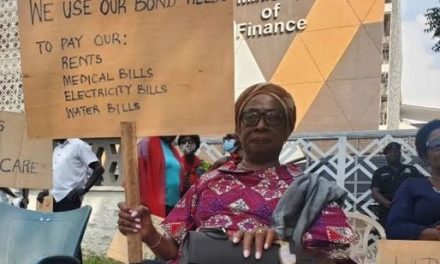
Climate change remains a significant threat to the world – Akufo-Addo2 min read

According to him, schools in South Sudan had to be shut down earlier this year due to extreme heat waves.
Speaking on Green Ghana Day at the Burma Camp on June 7, he said “There are fears that the home of Africa may become inhabitable in the coming years due to the severe weather conditions. The impact of the other crisis is equally alarming.”
This follows assertion by the President of the World Health Organisation (WHO) that air pollution is responsible for 6.7 million deaths annually, with nine out of ten people worldwide breathing air containing pollutants above recommended levels.
He stated that, the loss of biodiversity poses a significant threat to the planet.
Touching on this, President Akufo-Addo stated that the decline and extinction of animals, plants, and ecosystems can lead to disasters, diseases, and death.
“However, science tells us that forests play a critical role in sustaining life on earth and addressing these crisis. Here in Ghana, for example, activities related to agriculture, forest and land use contribute some 50 per cent of our national greenhouse gas emissions.”
“Therefore, preserving our forests and adopting sustainable agriculture and land use practices, have a high potential to combat climate change. 80 per cent of terrestrial biodiversity, forest, plays a vital role in conserving biodiversity and combating pollution.”
The president added that forests are natural resources for socio-economic development, particularly in developing countries where they provide livelihoods for the majority of the population.
“Regrettably, the world forest continues to be under severe threat with the loss of the tropical primary forests in 2023 alone totaling 3.7 million hectares. This has serious implications for food security, sustainable communities and national development.
“We must work together to change this narrative. We Africans are amongst the least contributors to the climate crisis, our continent of Africa suffers the most from its adverse consequences,” he said.
Story by: Anthony Owusu Achiaw


















